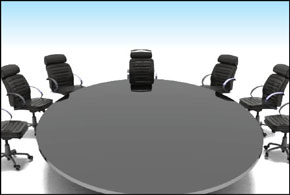
11 Qualities of a Strong Board of Directors
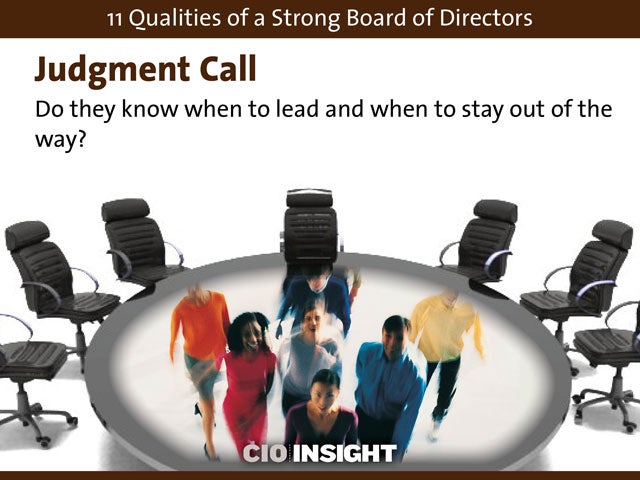 Judgment Call
Judgment Call
Do they know when to lead and when to stay out of the way?
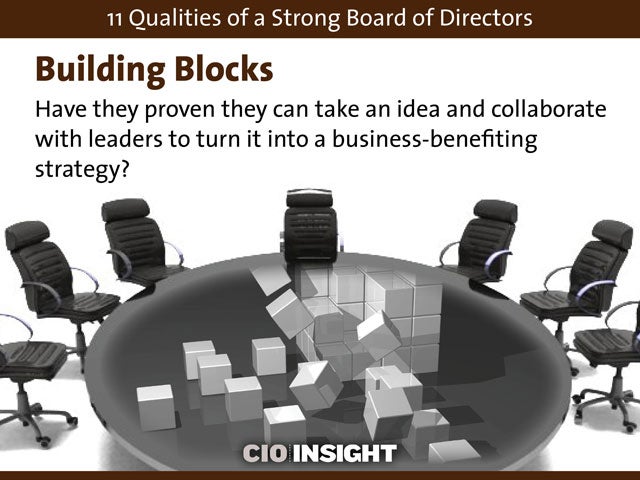 Building Blocks
Building Blocks
Have they proven they can take an idea and collaborate with leaders to turn it into a business-benefiting strategy?
 Multifaceted Thinker
Multifaceted Thinker
Are they open-minded enough to evaluate new information, while still maintaining the ability to learn from the past?
 Team Focus
Team Focus
Do they bring bench strength by adding intellectual strengths in areas where there are leadership voids?
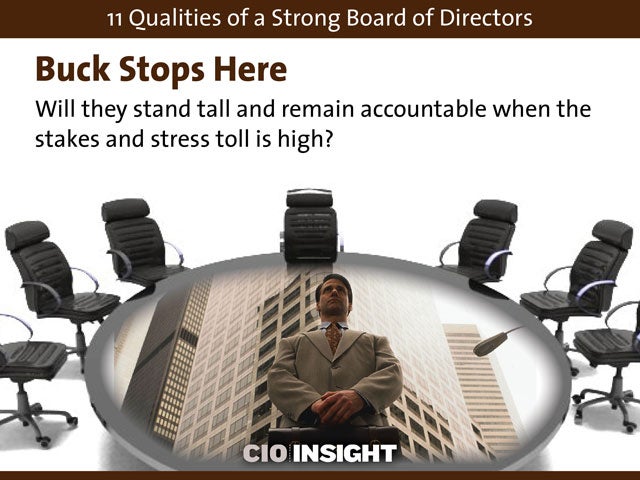 Buck Stops Here
Buck Stops Here
Will they stand tall and remain accountable when the stakes and stress toll is high?
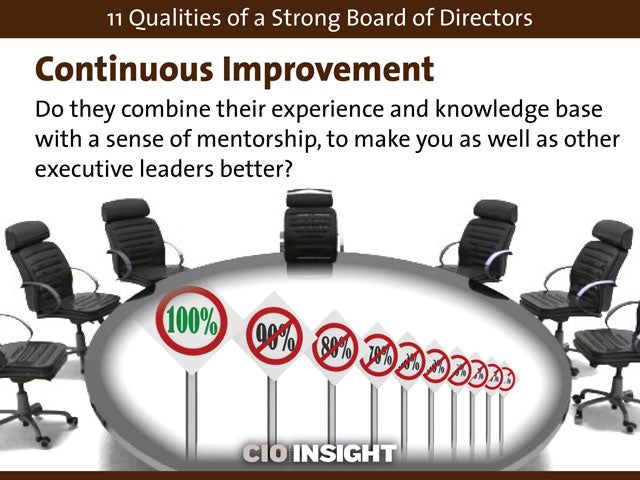 Continuous Improvement
Continuous Improvement
Do they combine their experience and knowledge base with a sense of mentorship, to make you as well as other executive leaders better?
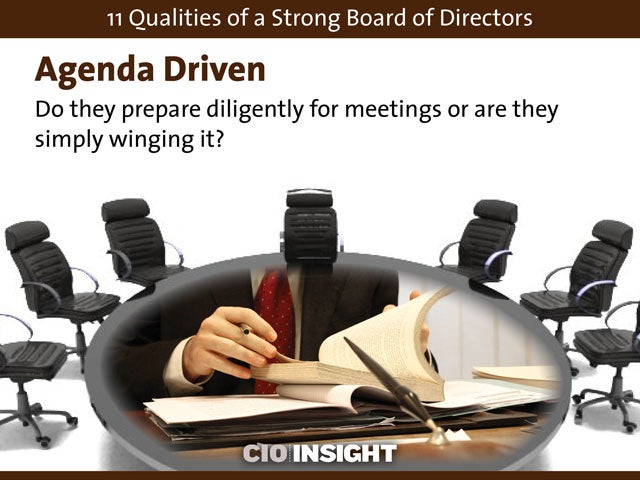 Agenda Driven
Agenda Driven
Do they prepare diligently for meetings or are they simply winging it?
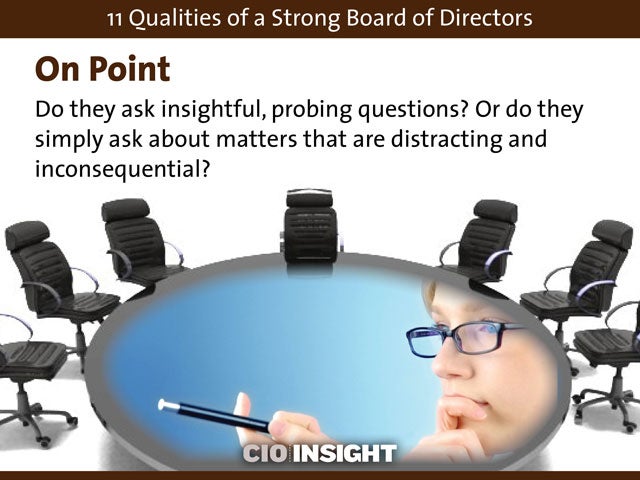 On Point
On Point
Do they ask insightful, probing questions? Or do they simply ask about matters that are distracting and inconsequential?
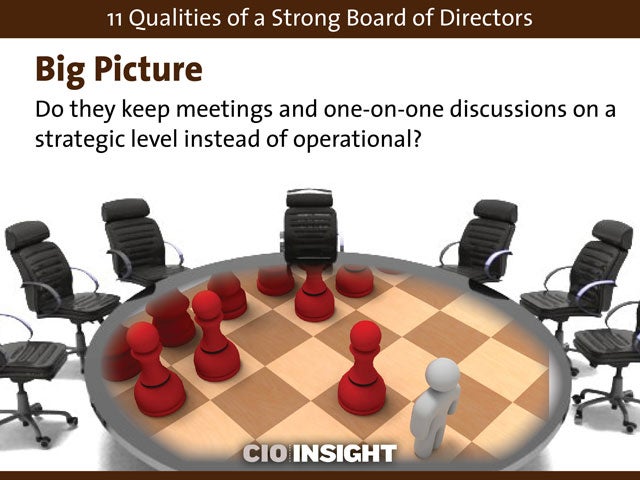 Big Picture
Big Picture
Do they keep meetings and one-on-one discussions on a strategic level instead of operational?
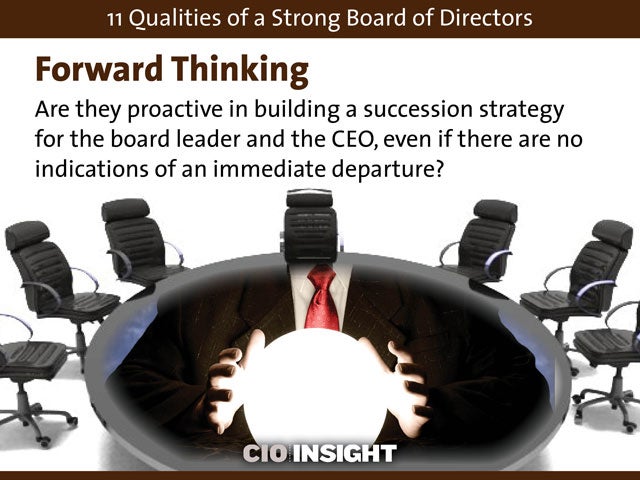 Forward Thinking
Forward Thinking
Are they proactive in building a succession strategy for the board leader and the CEO, even if there are no indications of an immediate departure?
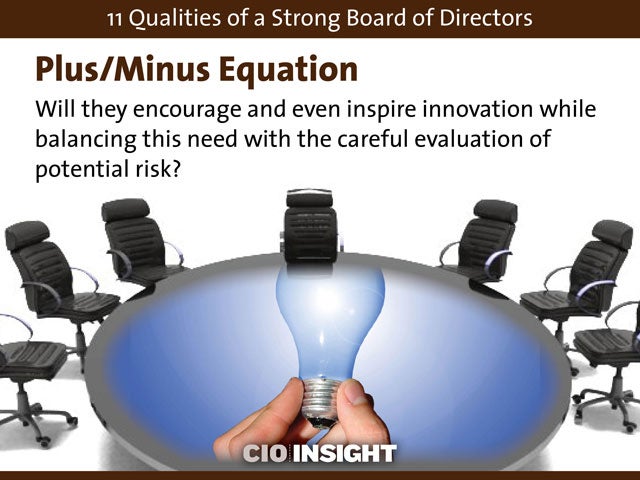 Plus/Minus Equation
Plus/Minus Equation
Will they encourage and even inspire innovation while balancing this need with the careful evaluation of potential risk?